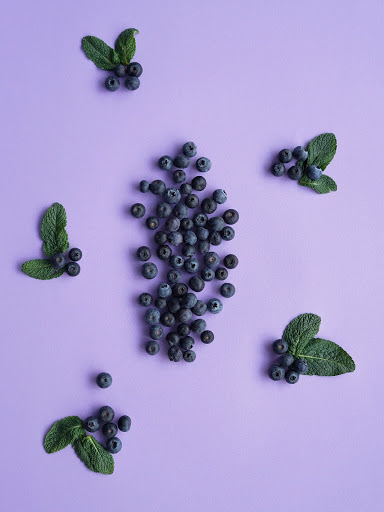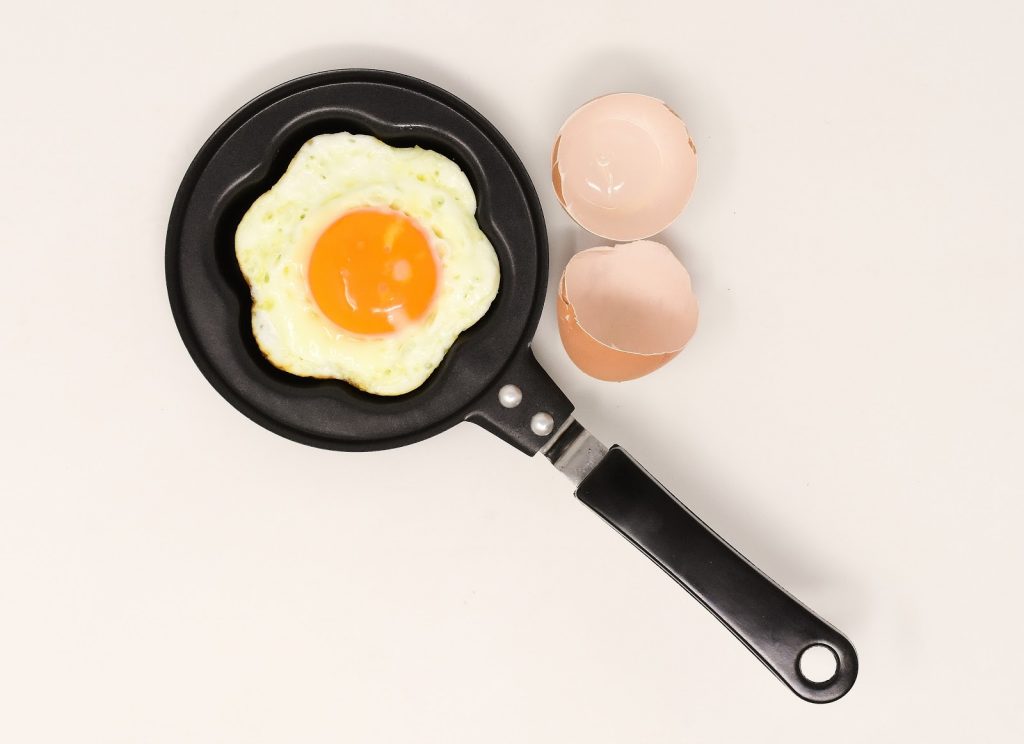-
Summer Savings: Save 20% On LASIK , Find More
*Must mention this promotion and be treated in August of 2024 to qualify. 20% off standard price of Wavelight procedure. Cannot be combined with any other offers.
Natural Foods to Help Promote Better Vision
Eyesight is undeniably one of the most important senses. Experiencing poor vision can significantly decrease a patient’s quality of life, and overall health and well-being. But fret not, you aren’t without options.
Too often, failing eyesight is attributed to factors such as aging or consistent eye strain. However, in reality it is our diets that play a large role in our vision.
You probably grew up being told that eating carrots will give you night vision, or give you superhuman sight. While munching on a carrot stick won’t suddenly give you the ability to see in the dark, there is a growing body of evidence pointing to the fact that what you eat directly affects your vision.
The good news is, nature provides exactly what you need to eat, in order to improve the health of your eyes. You only get one pair of eyes, so it’s important to treat them with the best care possible.
At LasikPlus, providing our patients with clear, healthy vision is our ultimate goal. So below, we’ve put together a list of natural foods you can eat to help promote better vision.
Add Colorful Bell Peppers to Your Diet for a Low-Calorie Vision Boost
Raw, colorful, bell peppers are packed with vitamins A and C, which provides your entire body, especially your eyes, with the nutrients it needs to function properly. Bell peppers actually contain the highest amount of vitamin C per calorie, so they’re a great option if you’re trying to cut down on your calorie count.
Bell peppers additionally contain lutein and zeaxanthin, the two important carotenoids responsible for keeping your eyes healthy and happy.
The vitamins found in uncooked bell peppers also help prevent age-related macular degeneration, which is the most common vision complication in patients over the age of 50.
If you are looking to add bell peppers to your diet- but you don’t enjoy eating them plain- try chopping them up and adding them to your salads, quesadillas, scrambled eggs, or even your next batch of guacamole.
Just remember, the process of cooking bell peppers breaks down the vitamin inside, so try to eat them raw as often as you can!
Get Your Daily Recommended Beta Carotene Dose with Sweet Potatoes

Just like carrots, sweet potatoes are also packed with loads of beta carotene.
In fact, by eating just one cup of sweet potatoes per day, with the skin still attached, you will be getting more than seven times the daily recommended amount of beta-carotene, according to Healthline.
Other orange-colored fruits and vegetables like cantaloupe, mangoes, papaya and pumpkin are fantastic sources of beta carotene as well.
So, make sure to add at least one of these delicious orange foods to your weekly meal-prep to help naturally promote better vision.
Small As They Are, Eating Blueberries Provides Big Benefits for Your Eyes
 These small berries pack a big punch when it comes to overall health and wellness. But they don’t stop there, blueberries are also great specifically for the health of your eyes.
These small berries pack a big punch when it comes to overall health and wellness. But they don’t stop there, blueberries are also great specifically for the health of your eyes.
Blueberries contain the two eye-healthy carotenoids, lutein and zeaxanthin, as well as zinc and vitamins C, E and A- all of which help maintain eye health, especially as you age.
Adding blueberries to your daily diet can help significantly reduce the risk of cataracts, glaucoma, inflammatory eye disease, and damage caused by diabetic retinopathy.
Many patients who are looking for natural foods to eat for better vision turn to blueberries, because they are perfect for on-the-go snacking.
Just one handful of blueberries contains 14 milligrams of vitamin C, which is a very generous amount considering their modest size!
Nuts & Seeds Provide the Perfect On-the-Go Vision Boosting Snack
The saying is absolutely true, good things do come in small packages.
The healthy amounts of vitamin E found in nuts and seeds protects the cells in our eyes from free radicals, and slows the progression of cataracts.
By eating a single ounce of nuts or seeds, you’ll get about half of the daily recommended vitamin E intake.
You can also get a healthy dose of vitamin E from foods like wheat germ, hazelnuts, peanut butter, sunflower seed, flaxseed, almonds, walnuts, hazelnuts and chia seeds.
If you are looking to naturally boost your eye health, stash a bag of nuts or seeds in your car and snack on them throughout the day.
How Do You Like Your Eggs? Keep the Yolk, If You Want to Reap the Full Vision-Boosting Benefits!
Egg yolks contain high amounts of zinc, vitamin A, lutein and zeaxanthin- all of which are very important in maintaining healthy, long-term vision.
The zinc and vitamin A found in egg yolks helps to safeguard the surface of your eye, while the lutein and zeaxanthin help lower the chances of age-related macular degeneration and cataracts.
Additionally, the zeaxanthin found in this popular breakfast food can help protect your eyes from the sun’s ultraviolet rays, while the zinc contributes to the health of the back of your eyes, enabling you to see better at night.
Next time you make eggs for breakfast, be sure to include the yolk so you can fully absorb all the vision-boosting properties.
Eat Your Dark, Leafy Greens to Lower Your Risk of Eye Diseases
Dark green vegetables like lettuce, collard greens, arugula, kale and spinach are all incredibly important natural foods to eat to help promote better vision.
In addition, broccoli, peas, asparagus and avocados are also packed with powerful antioxidants to help keep your eyes healthy and happy.
High in vitamins A, E and K as well as copper, iron, calcium, potassium, manganese and phosphorus, leafy greens are extremely useful in lowering the risk of eye diseases, including cataracts.
In order to retain the vitamins in dark leafy greens, try cooking them in as little water as possible, for a smaller amount of time, to cut down on nutrient loss.
Improve Eye Function with the Fatty Acids in Fresh Fish & Shellfish
In order to take proper care of your vision, you need to eat a healthy amount of good fats. The two kinds of fat, classified as Omega-3 fatty acids, are especially helpful for maintaining proper eye function.
The types of fish that contain the highest levels of omega-3s are tuna, salmon, trout, mackerel, sardines, anchovies, shrimp and crab.
Some studies have even found that taking fish oil can reverse dry eye, including dry eye caused by spending too much time on a computer.
Daily Recommendations of Vitamins and Nutrients for Healthy Eyes
As suggested by the AAO, the daily recommendations of nutrients you should be getting to maintain healthy eyes are as follows:
- 500 milligrams (mg) of vitamin C
- 400 international units of vitamin E
- 10 mg lutein
- 2 mg zeaxanthin
- 80 mg of zinc oxide
There are many ways that you can naturally boost the health of your eyes, to avoid experiencing vision complications.
Combining a diet rich in natural foods with annual eye exams can help prevent a myriad of vision complications.
In addition to eating well to naturally improve your vision, you can also protect the health of your eyes by getting rid of your contacts- which have been proven to cause harm to your cornea, as well as cause overall discomfort.
If you are interested in getting rid of your contacts once and for all, schedule your free consultation with us today to see if you are a candidate for LASIK surgery.
YOU MIGHT ALSO LIKE...
VISION CENTERS NEAR ME
Enter your zip code, city, or a doctor name below to find a vision center.
Find out if LASIK is right for you
Congratulations!
Your vision issues can most likely be corrected with a LASIK procedure. Schedule a free consultation today.
Answer 5 simple questions to see if you are a candidate
What is your age group?
Do you wear...
With corrective lenses, do you have...
Have you ever been told that you have astigmatism?
Have you ever been told that you have dry eyes?
Request an Information Kit
Learn about your surgeon, the latest advanced technology, procedures, options and benefits, financing options, and what to expect from your LASIKPlus experience.









